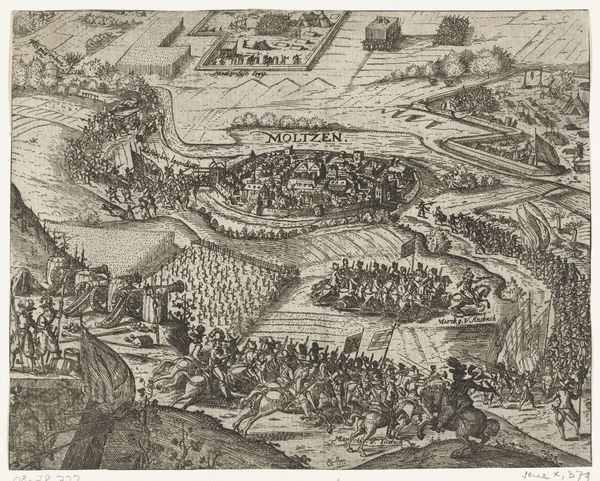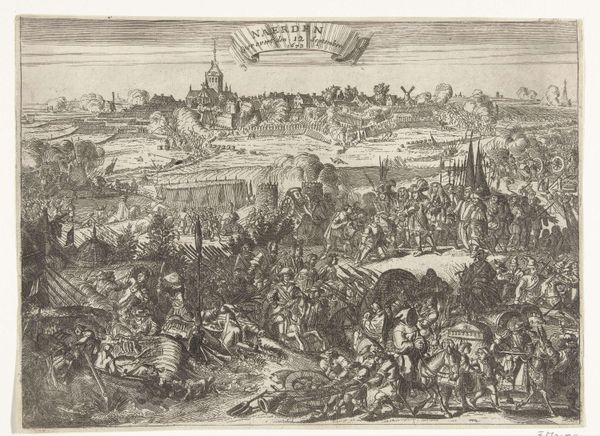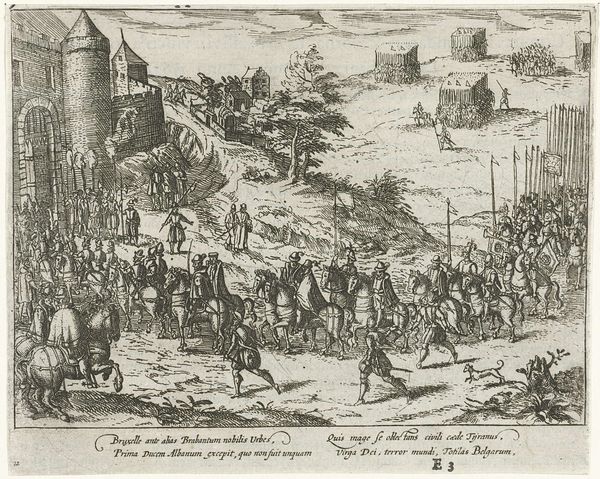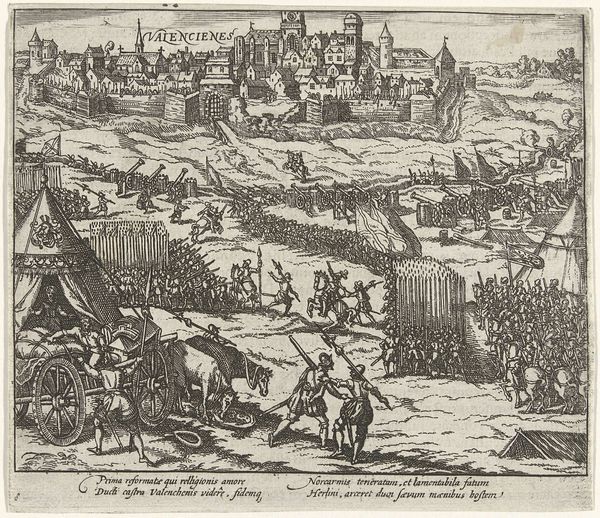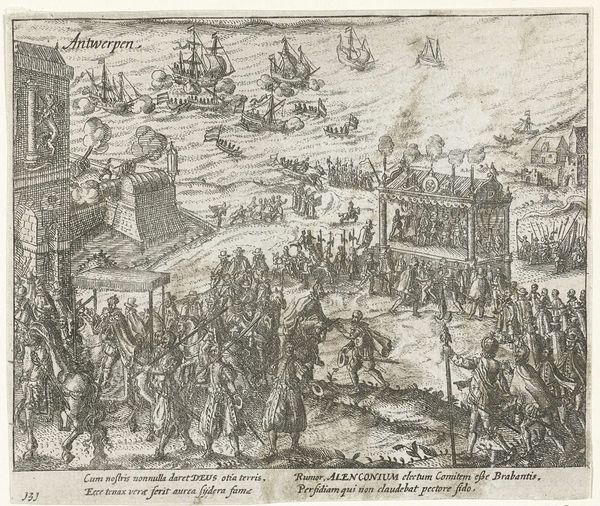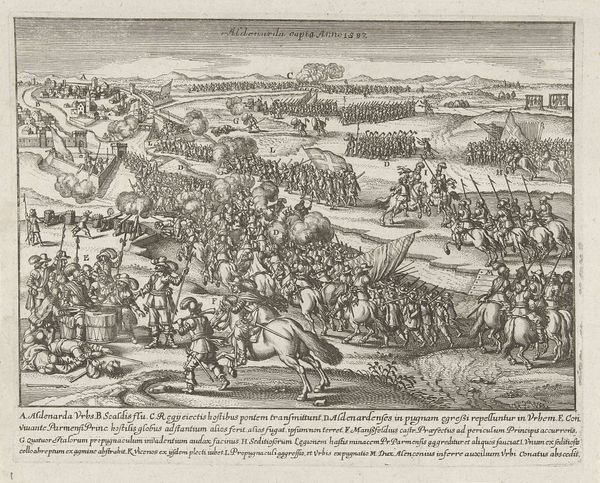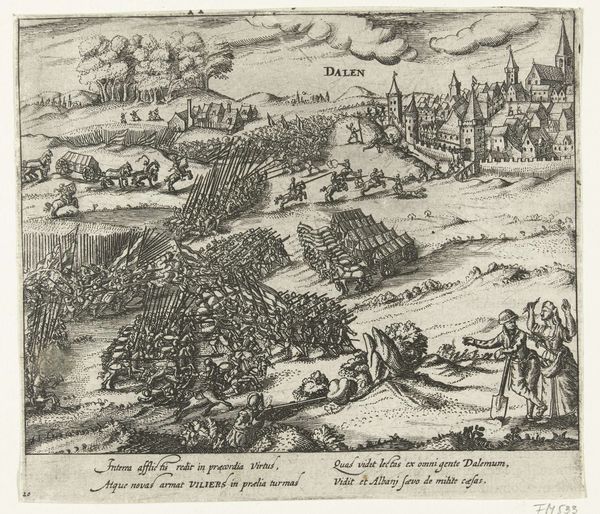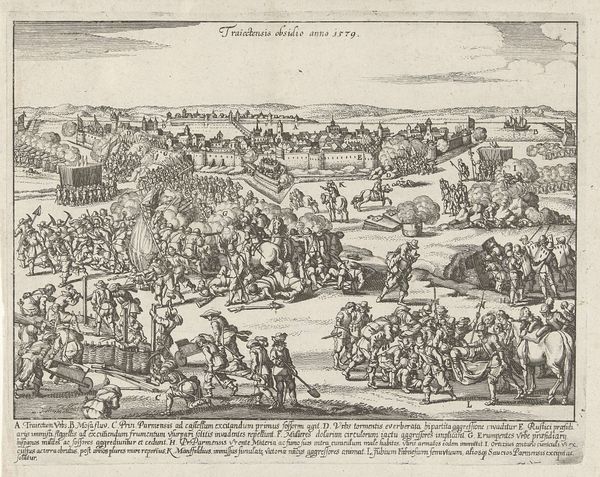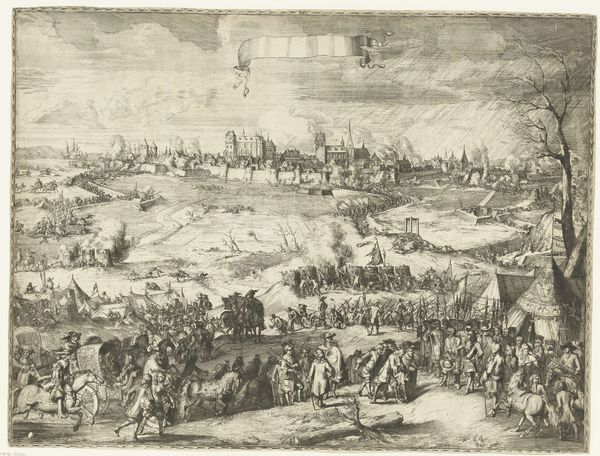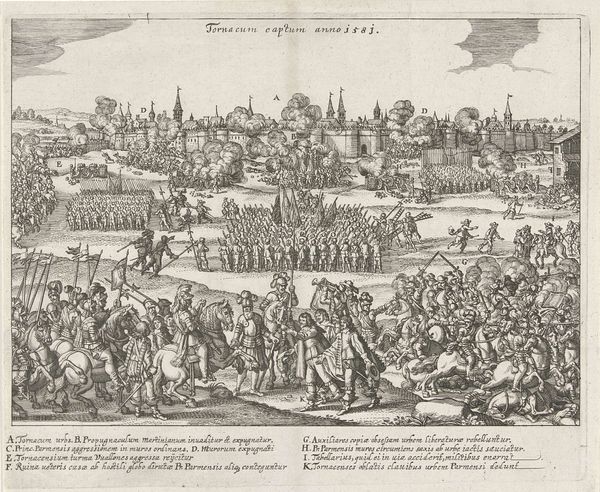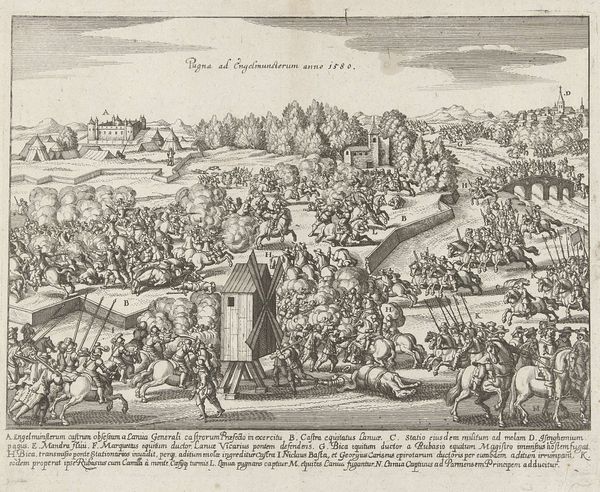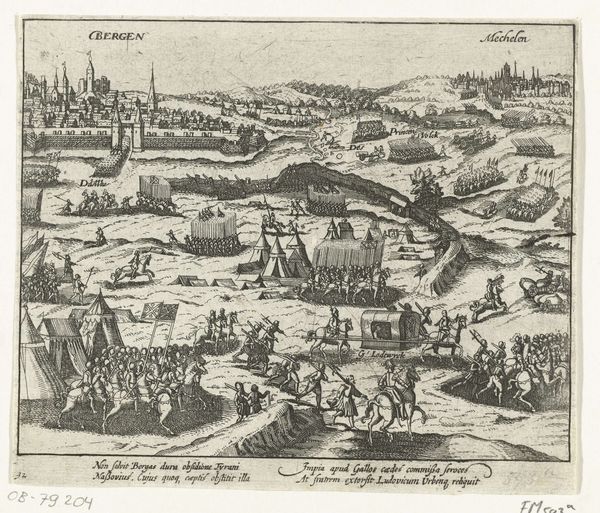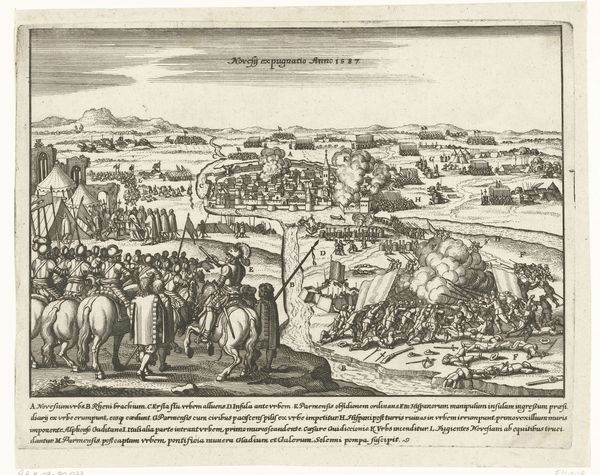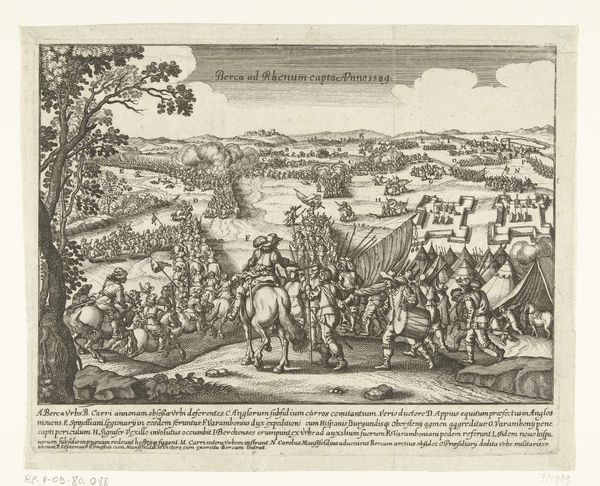
drawing, print, ink, engraving
#
drawing
#
narrative-art
#
baroque
#
pen drawing
# print
#
landscape
#
ink line art
#
ink
#
geometric
#
cityscape
#
history-painting
#
engraving
Dimensions: height 130 mm, width 173 mm
Copyright: Rijks Museum: Open Domain
This print, made in 1567 by an anonymous artist, is a masterful example of the etching technique. The image is brought to life through the careful application of acid to a metal plate, a labor-intensive process requiring considerable skill. Look closely, and you'll notice how the density of the lines creates depth and texture, defining the figures, landscape, and architectural details. The choice of etching, as opposed to other printmaking methods, speaks to the growing demand for accessible imagery in the 16th century. Prints like these were relatively inexpensive to produce, allowing for the widespread dissemination of information and propaganda during a time of great political and religious upheaval. The detailed rendering of this historical moment—the Prince of Orange's departure to Germany—underscores the medium’s power to capture and circulate narratives. By focusing on the materiality and means of production, we see how this artwork participates in broader cultural and social exchanges, blurring the lines between art, craft, and historical documentation.
Comments
No comments
Be the first to comment and join the conversation on the ultimate creative platform.
